Welcome to our 2023 Symposium Speaker Lineup! This year’s theme is One Health and the Human-Animal Bond. As we get closer to the August 2023 Symposium, we will be releasing more speaker profiles for those who will be presenting this year!
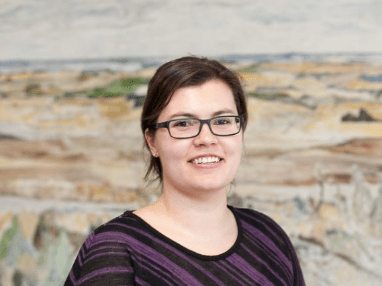
Dr. Jennifer Loewen
Emergency & Critical Care
| Dr. Jen Loewen is presently Assistant Professor of Small Animal Emergency Medicine and Critical Care at the Western College of Veterinary Medicine at the University of Saskatchewan. Dr. Loewen grew up in Winnipeg, Manitoba prior to earning her DVM degree at the Western College of Veterinary Medicine. Following graduation, she completed a small animal rotating internship at Iowa State University and a residency in Small Animal Emergency and Critical Care at the University of Wisconsin-Madison. Dr. Loewen obtained her board certification from the American College of Veterinary Emergency and Critical Care in 2018. She is currently working on a Masters of Education in Health Professional Education. Her research interests include blood transfusion medicine and medical education. |
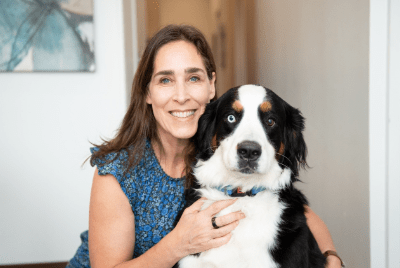
Dr. Faith Banks
Geriatric Medicine
| Dr. Faith Banks graduated from OVC in 1996, and has been practicing veterinary medicine in Toronto ever since. While working as a general practitioner, she became interested in geriatric medicine and pain management for pets while caring for her own geriatric Bernese Mountain Dog, Smudge. She then started Midtown Mobile Veterinary Hospice Services in 2012 and it has grown to a team of 31 people. Last year, she opened Faithful Pet Memorial, Toronto’s first Aquamation, water based cremation service for pets. She is amongst the first group of veterinarians to be named as a Certified Hospice and Palliative Care Veterinarian (CHPV) through the International Association for Animal Hospice and Palliative Care (IAAHPC). She shares her home with her husband and 3 children, a lovable senior Bernese Mountain Dog named Maple and her puppy-ish Bernese Mountain Dog, Elsie. |
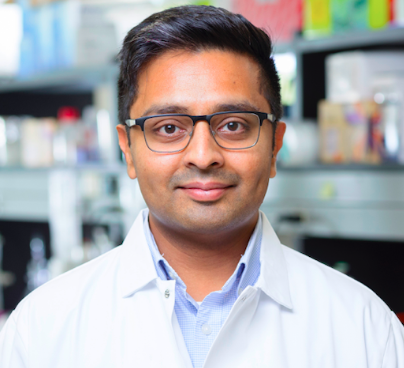
Dr. Arinjay Banerjee
One Health Panelist
| Dr. Arinjay Banerjee (PhD) is a virologist and the Principal Investigator of the Laboratory of Zoonotic Viruses and Comparative Immunology at the Vaccine and Infectious Disease Organization, University of Saskatchewan. Dr. Banerjee is the co-lead for One Health at the University of Saskatchewan. Research within Dr. Banerjee’s laboratory focuses on three main themes that are inspired by the One Health ideology, (1) virus-host interactions in wildlife reservoir species, such as bats, (2) virus-host interactions in spillover species, such as humans, and (3) viral vaccine development. Dr. Banerjee completed his Master of Science degree in virology from the National Institute of Virology in India where his Master’s thesis was awarded the university gold medal. Next, Dr. Banerjee completed his PhD from the University of Saskatchewan where his doctoral thesis on coronavirus-host interactions was awarded Canada’s Governor General’s Gold medal. Dr. Banerjee’s postdoctoral research at McMaster University was awarded the Gerard Wright postdoctoral award in Infection Research and the postdoctoral fellow impact award. Dr. Banerjee was selected as CBC Saskatchewan’s Top 40 under 40 in 2022. |
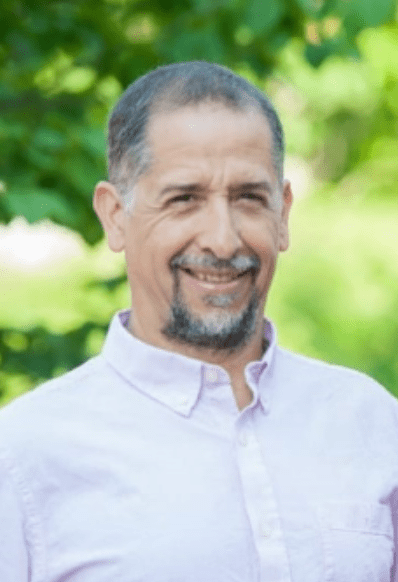
Dr. Javier Sanchez
Epidemiology
| Dr. Javier Sanchez, DVM, Ph.D. Veterinary Epidemiologist, is a Veterinarian from Argentina. After graduating from the Universidad Nacional de Rio Cuarto, Cordoba, he practiced for five years in cow-calf and beef production systems. Then he started working in epidemiology and moved to Canada for his Ph.D. at the Atlantic Veterinary College. Dr. Sanchez is now a professor of epidemiology at the Atlantic Veterinary College. His expertise is in quantitative methods in epidemiology with an emphasis on disease transmission models and risk assessment applied to food safety, animal health, and one health. Before joining the Atlantic Veterinary College in 2009, Dr. Sanchez worked for the Public Health Agency of Canada as an epidemiologist with the Policy Advice and Effectiveness Program of the Laboratory for Foodborne and then for the Canadian Food Inspection Agency as a scientific advisor and risk assessor. Dr. Sanchez continues to work actively with countries worldwide but mostly focused on research activities in Latin America. He has published more than 100 scientific papers in veterinary epidemiology, and he is a dynamic member of national and international conferences. He lives in a small community in Prince Edward Island and enjoys outdoor activities year-round. |
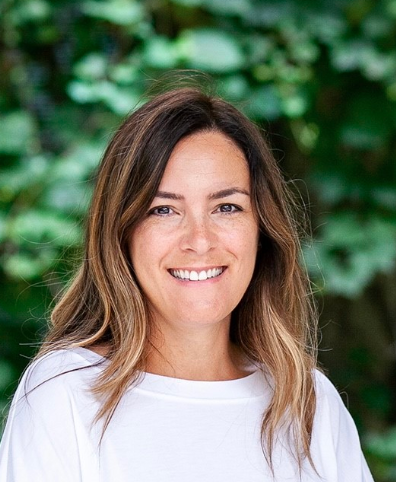
Dr. Candace Lowe
Dentistry
| Dr. Candace Lowe received her veterinary degree from the Western College of Veterinary Medicine in 2005. Following graduation, she worked as a clinical associate in radiation oncology at the WCVM Veterinary Medical Centre. In 2008, Dr. Lowe began a combined residency in veterinary dentistry and Master of Veterinary Science degree program, which she successfully completed in July 2011. She joined the WCVM’s Department of Small Animal Clinical Sciences as an assistant professor in September 2011 and now operates the veterinary dentistry clinical service at the WCVM Veterinary Medical Centre. Dr. Lowe is a board-certified specialist with the American Veterinary Dental College. |

Dr. Charlotte Pye
Dermatology
| Dr Charlie Pye BSc, DVM, DVSc, DACVD received her Doctorate of Veterinary Medicine from the Atlantic Veterinary College, PEI. She then moved to Saskatoon for a rotating internship at the Western College of Veterinary Medicine. Following her internship, she travelled back for a Dermatology Residency at the Ontario Veterinary College. While at OVC, she also completed her Doctorate of Veterinary Science degree specializing in bacterial biofilms. After passing boards she began working at Guelph Veterinary Specialty Hospital, a private referral practice in Ontario; also travelling back to PEI to teach the veterinary students a few times a year. As of May 2018 she joined the team at the Atlantic Veterinary College as an assistant professor, and established the first ever Dermatology service at AVC. She has lectured all over North America and has contributed to multiple journals and textbooks. She is also currently the treasurer for the Canadian Academy of Veterinary Dermatology. In her spare time she enjoys crafting, hiking, camping and spending time with her other half, her daughter and her son. She is currently “owned” by two cats and a small terrier mix (who has allergies!) |

Dr. Trisha Dowling
Pharmacology
| Trisha Dowling is a veterinarian and professor of veterinary clinical pharmacology at the Western College of Veterinary Medicine. She graduated from Texas A&M in 1987 followed by a large animal rotating internship at North Carolina State. This was followed by 2 years of practice in Ohio and North Carolina, the latter a great source of humorous teaching stories. After a large animal medicine residency and Master’s at Auburn University, she became a board certified by the American College of Veterinary Internal Medicine and the American College of Veterinary Clinical Pharmacology. In 1993, she came running away to Saskatoon for a short time, but met and married a local guy so has been here ever since. Given US politics, she’s glad that she did. The WCVM mostly pays her to teach clinical pharmacology, but in 2010 she snuck the first mindfulness based stress reduction course in to a veterinary school curriculum for credit – all without mentioning the words “yoga” or “meditation”. She is the founder and co-director of the Canadian global Food Animal Residue Databank (CgFARAD) and does research on drug residues in horses and food animals. She has received numerous teaching awards including the Norden Distinguished Professor, the UofS Provost’s Teaching Award, the UofS Master Teacher’s Award and the American Association of Veterinary Pharmacology and Therapeutics Outstanding Teacher Award. |

Dr. Tessa Baker
One Health Panelist
| Dr. Baker completed a Bachelor of Science majoring in Animal Biology at Thompson Rivers University in Kamloops, BC in 2006 and graduated with a DVM from the Western College of Veterinary Medicine at the University of Saskatchewan in 2010. After graduation in 2010, she worked in both rural mixed animal and urban companion animal practice in Alberta for 6 years. She has always had an interest in the interrelationship between people, animals and the environment and access to veterinary care. Between university years and during short career breaks, she pursued this interest on a volunteer basis, traveling to Kenya with Global Vision International and to Laos with Veterinarians Without Borders Canada. To further explore this interest, she completed a Masters of Veterinary Science in 2018 at the University of Calgary Faculty of Veterinary Medicine (UCVM). Her thesis evaluated the impacts of the provision of subsidized veterinary services in five remote northern Indigenous communities on dog health and welfare and community concerns about dogs. Since completing her masters, she worked from 2018-2021 at the UCVM promoting and advancing education and research in One Health, globalization, and Indigenous engagement and cultural awareness. In June 2021 she successfully wrote the American College of Veterinary Preventive Medicine board exams to become a Diplomate of the ACVPM. She is now a Postdoctoral Associate at the UCVM working on a number of projects associated with access to veterinary care, dog population management in Indigenous communities, and improving diversity and equity in the veterinary curriculum and profession. She is currently working on understanding the stressors that veterinary service providers (vets, vet students, vet technicians) may encounter when delivering preventive care in remote communities and identifying the types of preparation and resources required to mitigate stressors and optimize respectful patient and client care. She is also developing an animal health program in partnership with a local First Nation that will span all 4 years of the DVM curriculum and see veterinary students work collaboratively with community members around animals and animal health. |

Dr. Kelsey Spence
One Health Panelist
| Kelsey Spence is an Assistant Professor in Epidemiology and One Health in the Department of Population Medicine at the Ontario Veterinary College, University of Guelph. She received her BSc from Trent University in 2014 and PhD from the University of Guelph in 2017. Prior to returning to OVC, she held positions as a postdoctoral researcher at the Royal Veterinary College in London, England, and as a mathematical modeller at the Public Health Agency of Canada. Dr. Spence’s research program explores the use of biosecurity and infection control practices among animal and human populations. She is particularly interested in how disease dynamics and the use of biosecurity measures are influenced by socio-cultural factors. She integrates epidemiological, sociological, and mathematical approaches to identify and communicate optimal risk reduction strategies to ultimately improve disease preparedness. |

Janelle Jiminez
One Health Panelist
| Janelle comes from a diverse professional background that focuses on research and business. In 2011, she completed her Bachelor of Science at the University of Alberta that specialized in Cell Biotechnology and in 2016 completed her MSc in Animal Science that investigated reducing intestinal inflammation through the supplementation of fiber and wheat bran, using the mouse as a model of the human intestine. In addition to her formal schooling, Janelle has also worked in Scientific Sales, and has worked with pharma under the quality assurance umbrella. In 2017 she began working with Livestock Gentec as a Research Coordinator. After 5 years coordinating research projects aimed at improving the health of livestock animals using genetic techniques, Janelle began working with the Antimicrobial Resistance (AMR) – One Health Consortium as a coordinator, and now holds the role of the Consortium Manager. As the Manager, Janelle manages 32 research projects by providing budgetary support, research support and resources to project leads, creates collaborative opportunities for the consortium members, and provides funding opportunities for researchers. In 2022, Janelle completed a Masters in Business Administration from the Alberta School of Business, and aims to apply her knowledge and network towards creating commercialization opportunities for academic researchers and engaging with the AMR stakeholders in government and industry to improve the health of humans, animals, and the environment. In her career she has published 8 peer-reviewed articles and has over 300 citations from her research. She also enjoys taking part in events that expand her scientific network and give her the opportunity to learn and engage with her peers. |

Dr. Murray Gillies
Anti-Microbial Resistance
| Dr. Murray Gillies grew up on his family’s dairy farm in Sussex, New Brunswick. He obtained his undergraduate degree in agriculture and animal science from the Nova Scotia Agricultural College before completing his Doctor of Veterinary Medicine degree from the Atlantic Veterinary College in Prince Edward Island. After graduating, Dr. Gillies spent two years in New Zealand in a dairy focused clinic before moving back to New Brunswick where he worked for the Government of New Brunswick for 5 years in large animal practice. In September 2018, he joined the veterinary pharmaceutical company Vetoquinol as a technical services veterinarian, where he worked for 4.5 years. Dr. Gillies is a past president of the Canadian Association of Bovine Veterinarians and the current District 12 director for the American Association of Bovine Practitioners. He is also a member of the Canadian Animal Health Surveillance System and the Canadian Antimicrobial Network. He is currently working on a Master’s in health management and public health at the Atlantic Veterinary College with a project focusing on antimicrobial use on dairy farms. Dr. Gillies was the dairy subject matter expert for the Canadian Veterinary Medical Associations Stewardship of Antimicrobial use by Veterinarians Initiative (SAVI) in 2018 and 2022. He remains very active in the day-to-day operations of their dairy farm, where they have implemented many of the SAVI recommendations and guidelines successfully, including zero-zero calf care, selective dry cow therapy, and following the prudent use guidelines for treatments when necessary. He is very passionate about the Canadian bovine veterinary, dairy, and agricultural sectors. He loves discussing dairy practice, bovine veterinary medicine, and science in general and can be reached to discuss these topics at any time. His other interests include video games, anime, nature, hiking, and history. |

Dr. Valerie Macdonald
Oncology
| Dr. Valerie MacDonald is a native of Pictou NS and received her Bachelor of Science degree from the University of Toronto. She received her DVM degree at the Atlantic Veterinary College, University of Prince Edward Island in 2000. She practiced in Sun City, Arizona for 2 years in a small animal clinic. She completed a residency in Medical Oncology at the University of Wisconsin-Madison and became a Diplomate of the American College of Veterinary Medicine (Oncology) in 2005. She stayed an additional year at UW as a clinical instructor in Oncology. In 2006, Dr MacDonald moved back to Canada, accepting a position as Associate Professor in Medical Oncology at the Western College of Veterinary Medicine (WCVM) at the University of Saskatchewan. Dr MacDonald established the first medical oncology service and residency training program at the WCVM. Her current research involves using radioimmunotherapy for osteosarcoma. |
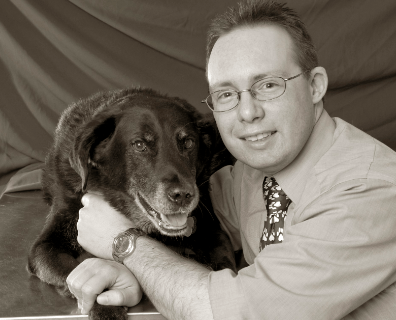
Dr. Ryan Llera
Companion Animal Medicine
| Dr. Ryan Llera knew he wanted to be a veterinarian from the age of 16 when a cat and a veterinarian changed his life. Growing up in Miami and after finishing his undergraduate degree at the University of Florida, he found himself surrounded by wheat fields and a pig farm going to vet school in Illinois. After graduating and returning to south Florida for an internship and associate position for a few years, he made one of his smartest moves and married a Canadian before moving to Ontario. Finally settling in Kingston since 2011, he is currently the senior veterinarian at Kingston Veterinary Clinic with a special interest in surgery. Outside of work, he spends time with his wife and daughter and enjoying camping, dog agility, and gaming. He writes an occasional column for the local Kingstonist news site and in the past has contributed to blogs curated by the OSPCA, Dr. Andy Roark, and Miss Edie the Pug. |
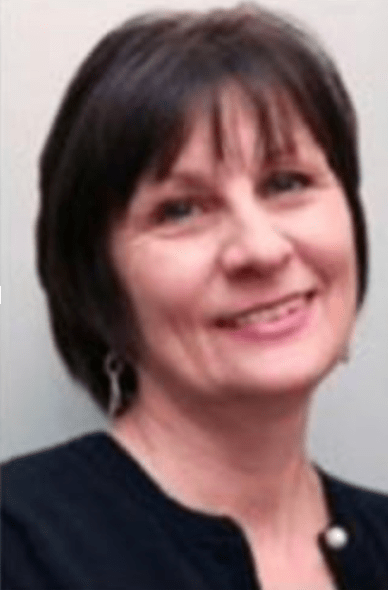
Dr. Beverly McEwen
Pathology
| Dr. McEwen graduated from the Ontario Veterinary College, University of Guelph. After a year in practice, she returned to OVC, completed a Master’s degree and PhD in veterinary pathology and became board-certified by the American College of Veterinary Pathologists. She is a full member of the American Academy of Forensic Sciences, has been a member of the International Veterinary Forensic Sciences Association since its inception and completed 2 terms on the IVFSA Board of Directors. Dr. McEwen is one of 8 Founding Fellows of Veterinary Forensic Pathology within the ACVP and has chaired several committees for the IVFSA and the American Academy of Forensic Sciences, Academy Standards Board, establishing standards for veterinary forensic postmortems. She is on the editorial board of the Journal of Forensic Sciences, the official journal of the American Academy of Forensic Sciences. She is an invited speaker on veterinary forensic pathology at national and international conferences and has authored or co-authored journal articles on topics in veterinary forensic pathology in the Journal of Forensic Sciences, Forensic Medicine, Science, and Pathology and Veterinary Pathology. She was guest associate editor for the September 2016 issue of Veterinary Pathology, entirely devoted to veterinary forensic pathology, a first for any veterinary journal. Several chapters she has written on the pathology of asphyxia and drowning are published in the 2 volume text Veterinary Forensic Pathology. |

Dr. Victoria Bowes
Poultry Medicine
| Dr. Victoria Bowes has worked at the Provincial Veterinary Diagnostic Laboratory in Abbotsford, BC since 1989 as a specialist pathologist with expertise in Avian Pathology. Her diagnostic caseload involves disease investigations in all species of birds (wild, pet, zoological and poultry). Dr. Bowes also co-developed the BC Ministry of Agriculture’s Small Flock Poultry Health Extension Program and has delivered over 150 poultry health workshops to both small flock owners and non-poultry veterinary colleagues. Dr. Bowes is a diplomat of the American College of Poultry Veterinarians (ACPV) and was also the inaugural chair of the Small Flock Committee of the American Association of Avian Pathologists (AAAP). Dr. Bowes has been a key player in 5 outbreaks of Notifiable Avian Influenza in BC’s Fraser Valley and is an internationally recognized expert in AI in poultry. She recently established a mobile veterinary practice specializing in small flock poultry medicine. |

Dr. Karin Orsel
Dairy Medicine
| Dr. Orsel completed her DVM at the Utrecht University in 1996 and she started to work as a veterinarian in several veterinary practices in The Netherlands. In February 1997 she started her job at the ambulatory clinic of the Department of Farm Animal Health in Utrecht. After being actively involved in an epidemiologic study during the epidemic of foot and mouth disease in 2001, she started her PhD on this topic from February 2002-February 2007. She obtained a MSc and PhD degree in veterinary epidemiology and economics in 2004 and 2007. She joined UCVM in February 2008, with a main focus on Epidemiology and Infectious Diseases of Cattle. In her capacity as epidemiologist, she is often a member of a multi-disciplinary teams to tackle complex health challenges for ruminants. |

Dr. Shane Bateman
One Health Panelist
| Shane Bateman DVM, DVSc, Diplomate ACVECC graduated from the Western College of Veterinary Medicine, in Saskatoon, in 1991. He worked in rural mixed animal practice prior to completing a small animal internship in 1993-94 and residency (and DVSc degree) in Emergency/Critical Care in 1994-97 at Ontario Veterinary College. Shane was a clinical track faculty member at The Ohio State University from 1998-2008 (achieving Professor-Clinical rank in 2008) developing programs in E/CC and Community Practice, a rotating small animal internship-training program, and the Human-Animal Bond. Since returning to Canada in 2009, Shane has been active at the Ontario Veterinary College- he was founding director of the Hill’s Pet Nutrition Primary Healthcare Centre, but rejoined the faculty in E/CC at OVC in 2014 as an Associate Professor. Shane has a number of clinical interests (pain management, fluid therapy, hemostasis) and has authored a number of peer-reviewed journal articles and chapters in popular textbooks. Shane is also passionate about the role of communication in the veterinarian-patient-client relationship and enhancing the human-animal bond in communities with inadequate access to veterinary care. He was the Chair of the Board of the Guelph Humane Society from 2011 to 2021 and has been a driving force behind construction of a new $10M shelter that opened in March 2021 and the Guelph Cat Population Taskforce initiative. In addition, Shane was the Regional Veterinary Director for Community Veterinary Outreach from 2011-2021- a charity that provides free preventive veterinary care for pets whose owners are homeless or at risk of homelessness using a One-Health delivery model. He also participated in a number of initiatives that deliver preventive care at low cost to First Nations communities in SW Ontario from 2012-2020. He was passionate about involving veterinary students in all of these activities. It was this passion that helped him to advocate for creation of a new learning pathway at OVC. The Kim & Stu Lang Community Healthcare Partnership Program, was funded by an $11M gift from Kim & Stu Lang to OVC in 2019 that will ensure that DVM and graduate students graduating from OVC will have acquired the skills, values, confidence and cultural awareness to deliver veterinary services of the highest possible standard to vulnerable animals and people in diverse inadequately serviced communities and in environments that are poorly resourced. Shane served as the interim veterinary director of the program from 2020-2022 and was responsible for the overall vision of the program and developing a comprehensive curricular proposal for OVC. During his sabbatical leave in 2022, Shane completed a Master’s degree in Veterinary Forensic Science and hopes to broaden student learning of this important animal welfare discipline at the college. He is currently an Associate Professor in the Department of Clinical Studies at the Ontario Veterinary College and returned to practicing as an Emergency/Critical Care specialist in the Companion Animal Medical Complex at OVC’s Health Sciences Centre in 2023. |

Laura Zehr
One Health Panelist
| Laura Zehr is a current M.Sc. student at the University of Guelph in the Department of Population Medicine. Laura has held a wide range of positions related to animal health spanning an even wider range of species. Throughout her experiences, she has seen how connecting with people can make a difference in the health of communities, environments, and animals within them. Currently, her thesis research builds on work done by the Canadian Animal Health Surveillance System (CAHSS) to further develop a tool for the use of a One Health approach to a variety of issues. Outside of school and work, she enjoys exploring the amazing landscapes that Canada has to offer and is very grateful for her pair of good-natured cats who have accompanied her and her partner on several multi-province road-trips. |
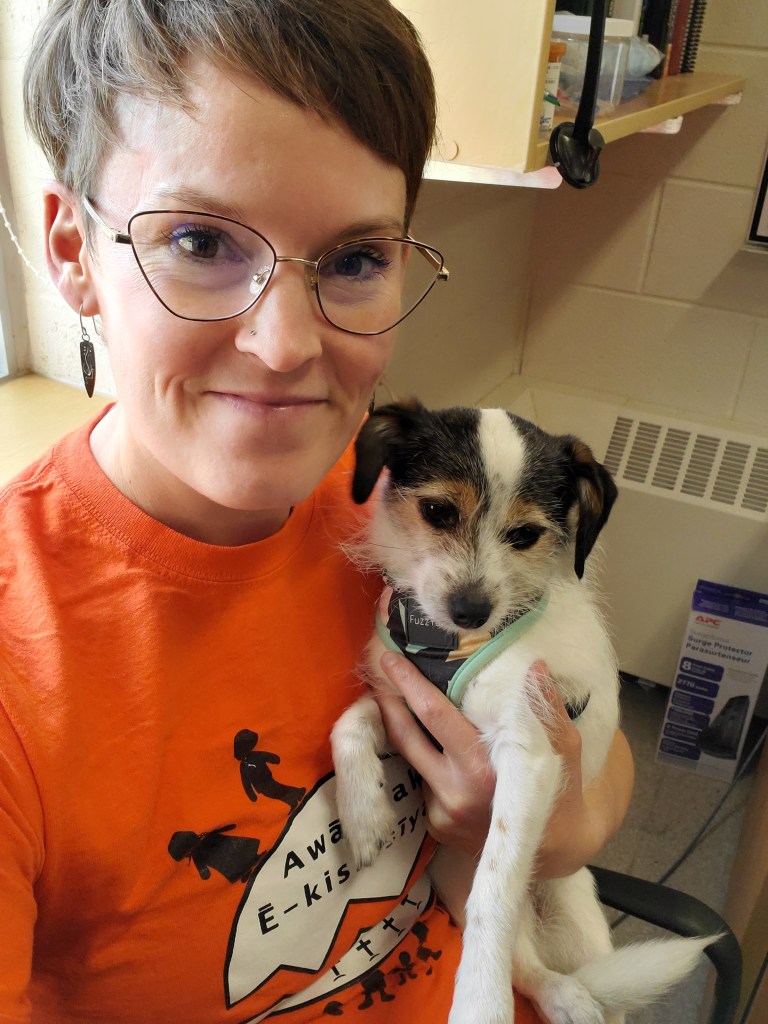
Dr. Jordan Woodsworth
One Health Moderator
| Dr. Jordan Woodsworth is a small animal clinician who graduated from the WCVM in 2008. In 2012, she returned to the WCVM to start the Wellness and Preventive Medicine program in the teaching hospital, and to spearhead the Northern Engagement and Community Outreach (NECO) program. In 2023 Jordan completed a PhD in community and population health which allowed her to engage in collaborative research with members of a northern Saskatchewan community she has served through the NECO program for almost a decade. Jordan’s primary role is now as Director of NECO, and she continues to explore new ways to bring awareness to animal health and welfare inequities in Canada with an ultimate goal to devise creative, community-led solutions to improving access to animal health and welfare services. Jordan continues to learn from colleagues and mentors about how to foster and develop anti-racist, anti-oppressive and anti-colonial environments within veterinary medicine and is playing a key role in development of WCVM’s anti-racism strategy. Outside of work, Jordan is married to her highschool sweetheart and is a mum to two amazing kids and a lovely dog. She loves being in her garden or at the lake, travelling with her family and friends, crafting, and cooking and eating amazing food. |
To visit our Pheedloop Platform which will be hosting our Symposium:
CLICK HERE